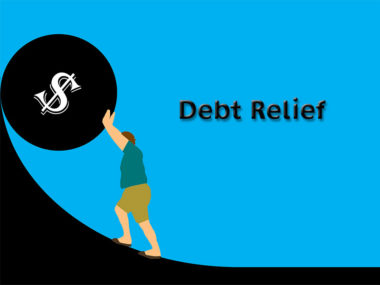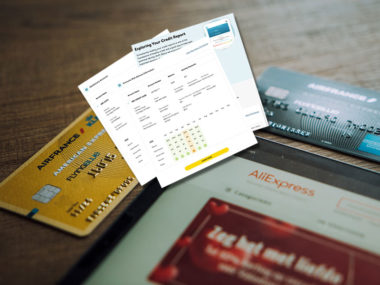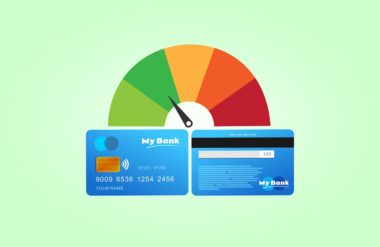
Debt is a part of life; you only need to look at the statistics to realize how common it is — the average American owes over $90,000. Unfortunately, with so much debt, there are also many people dealing with collections on past due or closed accounts, approximately 70 million Americans. These staggering numbers have likely increased over the last couple of years due to mass layoffs and labor shortages. Because of the commonality of debt in America, it is crucial that borrowers understand their rights involving fair collection practices. The receipt of a debt validation letter can be a required part of the legal collection process.
Table of Contents
How Is Debt Tracked?

When reviewing your credit history or report, it is not always clear how much you owe and to whom. Once a debt transfers from the original lender to a collection agency, it becomes challenging to track the ownership trail. Not all debt collectors go after every debt they purchase, meaning your debt may pass from one collector to another, exchanging hands until it meets the statute of limitations, typically seven years.
This common transfer of debt obligations can complicate repayment. Once the original lender sells your debt to a collection company, you no longer pay that entity. Instead, your obligation transfers to the new owner, and it continues to do so for as long as the debt is viable. The federal government, recognizing the struggle of tracking and verifying debt obligations, created and passed the Fair Debt Collection Practices Act.
Within the new law, all collection agencies are required to send debt validation letters when attempting to collect debts. This action makes it easier for debtors to track ownership of their debt.
What Is a Debt Validation Letter?
A debt validation letter serves as proof of a debt, explaining clearly who owes how much to who. The law requires debt collectors to send a validation letter within five to 10 days of initial contact with you. If you do not receive a letter within the stated timeframe, you should request one.
You should not simply take a debt collection company at its word. Many people have been scammed of hundreds or thousands of dollars paying debts they did not actually owe.
Additionally, the continued transfer and sale of debts from one collector to the next creates potential reporting redundancies. It is possible to get two debt collectors calling you over the same debt. Therefore, if you do not receive a validation letter, you should request one the next time the collector contacts you.
You should also ask for the mailing address and any other pertinent contact information in case you decide to request a verification letter, which you should send by certified mail.
Validation letters are designed to help consumers keep accurate records of their obligations. Any debt collection agency that fails to send letters is breaking the law.
What Is the Significance of a Debt Validation Letter?
There is a continued rise in phantom debt collectors — scammers who illegally broker and collect fake debts. In 2020, the FTC helped return over $483 million to consumers who were victims of such scams. Despite the legal actions and closure of unlawful operations, the debt collection industry is still plagued by fraudulent collectors.
Consumers often feel that the debts sound realistic, and in many cases, the amount of outstanding debt requested is minimal. In some instances, false collectors will explain how they purchased a large debt but are willing to settle for pennies on the dollar, which is enticing for consumers struggling with financial burdens.
The debt validation letter is one of the only ways to verify a debt is real. Additionally, with a letter, you have more information to dig into the validity of the obligation. You can also take additional action by challenging the debt or requesting a verification letter.
When it comes to debt, take steps to avoid being conned. The FTC is doing everything it can to help ensure you have the necessary tools to verify your financial obligations. If a debt collector contacts you but fails to provide a validation letter, do not give over any money. If the agency does not provide a validation letter after you request one, report the collector to the FTC.
What Information Is in a Debt Validation Letter?
Debt validation letters are essentially an overview of the debt you owe. The letter should contain several vital pieces of information, including:
- Amount owed
- Creditor name and contact information
- Statement of validity and dispute
- Notice about information requests and original creditors
Additionally, the letter should lay out your rights as a consumer. For instance, you have the right to request information about the original creditor. You also have the right to dispute the debt within 30 days of receiving the letter.
Debt collectors must expressly explain that they are attempting to collect a debt. The collector must also share the details of the debt and whether the collection is legally actionable.
In some instances, a debt collector may attempt to collect debts that are past the statute of limitations, meaning the collector cannot actually take legal action against you. Threatening legal action on too-old debts may be viewed as intimidation.
As a consumer, you need to be aware of the potential cons and errors in the industry. Not every collection notice is legitimate. As well as deliberate scams, sometimes mistakes happen and redundancies occur. Meaning you might accidentally be approached about a debt you no longer owe. It is up to you to challenge the validation letter in these situations.
How Should You Proceed After Receiving a Debt Validation Letter?
When you receive a validation letter, you need to read through the entire document, inspecting it closely for any errors. If there are any, you need to challenge the letter, explaining your reasoning. If there are no errors in the letter and you agree that the debt collection attempt is valid, you must pay it.
You want to take aggressive action against your debt, paying it off as soon as financially possible. In some cases, debt collectors are willing to work with you to arrange payment plans or settlement offers. When it comes to settlements, keep in mind this appears on your credit report. Therefore, it may be less satisfactory than paying off the entire debt.
While you should be aggressive when paying off debt, you also must be careful. If you get a debt validation letter but feel that something is not quite right, consider taking a different action than paying. If you are uncomfortable with the claims made in the validation letter, you could take the time to send a debt verification letter to the debt collector.
What Is a Debt Verification Letter?
As opposed to a debt validation letter that you receive, a debt verification letter is sent by you to the debt collector. A verification letter is essentially the filing of a disputed claim; claiming the debt is not yours or argue some aspect of the validation letter. You can send a verification letter disputing the validity of either the entire debt or a portion of it.
You do need to respect the timeframe. A verification letter must be sent within 30 days of receiving the validation letter. If you do not send a letter within 30 days, the debt is assumed real and actionable, as long as it is still within the statute of limitations.
However, you are still allowed to send a verification letter after the initial 30 days. If you send a letter after that time, the debt collector still needs to respond but can continue to contact you for collection because the debt is legally valid.
Always send a debt verification letter by certified mail. This means there is a recorded history of the document’s delivery, which can help if you ever need to take the matter to court.
How Do You Write a Debt Verification Letter?
Debt collectors are known for their tenacity and persistence, which can become overwhelming to the average consumer. For some people, the idea of having to write a letter disputing the validity of a debt validation letter can seem preposterous and exhausting, especially if they have already argued the point over the phone.
While writing a verification letter can seem like the last thing you want to do after receiving countless phone calls, it can actually be a bit of saving grace. Once you send a letter and the debt collector receives it, the agency cannot contact you again unless it is to verify your debt. Any verification must come in writing.
You want to include several points in your letter, including a statement that you are not responsible for the debt. The other things to include are requests for specific information, such as:
- Proof of the debt
- Amount owed
- Statute of limitations
- Last action on the account
- Proof the collector can pursue the debt in your state
Many people do not realize that a debt collector must have a license and the legal right to collect debts in their state. By requesting the above, you can feel comfortable about paying the debt agency or filing an action against it.
What Happens After Sending a Debt Verification Letter?
Once you send a verification letter and the debt collector receives it, all communication must cease until the debt can be verified in writing. If the collection agency cannot verify the debt, it must stop contacting you, period.
The company must also notify the credit bureaus to remove the debt from your reports. You will want to watch your credit reports to ensure the false debt is cleared.
If the debt remains on your credit reports, you need to contact the bureaus and challenge the debt. Ask them to look into your case. If the debt collector fails to report the false debt, you should report the company to the FTC, attorney general, or CFPB.
Depending on the validity of your debt and the amount owed, some collectors may write off the loss or sell your debt to another agency. If you do owe the debt, your best option is to pay it or settle it. You will likely continue to be hounded by collection companies if you don’t.
What if You Don’t Receive a Debt Validation Letter or Verification Response?
If you do not receive a validation letter from the first contact within a specific timeframe, the debt collection company should cease contact. The same is true if you request a validation letter and the company fails to provide one.
Under the Fair Debt Collection Practices Act, a debt collector must provide a validation letter; if it does not, it is in violation of the law. If the company fails to send a letter and continues to call you, you should file a complaint.
Additionally, if you send a verification letter and the company fails to respond with proof of the debt, it can no longer contact you. If it continues to contact you, report the agency to the FTC. You can also look into filing a lawsuit for illegal practices and potential harassment.
Know that many debt collectors count on consumers not understanding their rights. These businesses try to frustrate consumers and break their will so they pay to get the contact to stop. While the practice is shady, collectors are within their rights as long as they play by the rules instituted by the FTC. When consumers do not understand their rights, they tend to get taken advantage of.
At Fiscal Tiger, we believe education is the one tool every person needs to secure their financial future and prevent becoming victims of bad actors. How much do you know about fair debt practices or how debt influences your credit scores? Visit Fiscal Tiger to learn more about the debt validation letter, its usefulness, and repayment strategies.
Additionally, check out our consumer guides about credit building and restoration to start building towards a brighter financial future.





